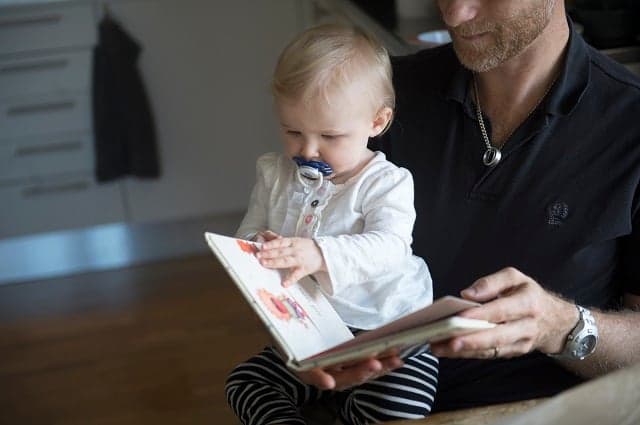Sweden is one of the world's best places to raise a family: Unicef

Sweden was ranked the best place to raise a family out of 31 wealthy countries in a new report from Unicef which rated how family-friendly different countries' policies were.
The study, based on data from 2016, took into account national policies on paid parental leave for mothers and fathers, accessibility of childcare services offered up until school age (six years old), and breast-feeding rates.
Sweden's high ranking was due largely to its generous parental leave policy and high levels of child care enrolment (51 percent for under-three-year-olds and 97 percent for three-to-six-year-olds).
Sweden offers 480 days of paid leave per child to each couple, of which three months is reserved for each parent. That made it the country with the highest amount of leave reserved for fathers, only outdone by Japan, Korea, and Portugal.
Paid leave and childcare accessibility varied widely among the countries studied, and no country was consistently ranked highly in every factor considered.
READ ALSO:
-
What you need to know about giving birth in Sweden
-
How we learned to embrace our awkward existence as a multicultural family in Sweden
-
Dads in Sweden are taking out more parental leave

Photo: Ann-Sofi Rosenkvist/imagebank.sweden.se
When asked why they did not use child care centres more, the country where cost was the biggest issue was the UK. In Sweden, along with Denmark and the Czech Republic, less than one percent of parents said affordability of childcare was an issue.
The top country in terms of maternity leave was Estonia, with 85 weeks at full pay, while the number one for parental leave was Japan, which offers 30.4 weeks, largely untaken by Japanese fathers. The only country to not offer any nationally-guaranteed full-pay parental leave was the United States.
The five lowest ranked countries overall were Switzerland, Greece, Cyprus, the UK and Ireland.
The report was released as part of Unicef's Early Moments Matter campaign, which aims to promote healthy brain development in young children.
"There is no time more critical to children's brain development – and therefore their futures – than the earliest years of life," said Unicef Executive Director Henrietta Fore. "We need governments to help provide parents with the support they need to create a nurturing environment for their young children."
Unicef is advocating for at least six months' fully paid leave per parent, increased access to childcare facilities, and safe and comfortable spaces for women to breastfeed, in order to make it easier to raise a family.
FAMILY LIFE:
-
How to raise bilingual children in Sweden: 8 language tips and tricks
-
How does 'vabba' work? What you need to know when your child is sick
-
Being the 'too much' family in 'just enough' Sweden
Loading...
Comments
See Also
The study, based on data from 2016, took into account national policies on paid parental leave for mothers and fathers, accessibility of childcare services offered up until school age (six years old), and breast-feeding rates.
Sweden's high ranking was due largely to its generous parental leave policy and high levels of child care enrolment (51 percent for under-three-year-olds and 97 percent for three-to-six-year-olds).
Sweden offers 480 days of paid leave per child to each couple, of which three months is reserved for each parent. That made it the country with the highest amount of leave reserved for fathers, only outdone by Japan, Korea, and Portugal.
Paid leave and childcare accessibility varied widely among the countries studied, and no country was consistently ranked highly in every factor considered.
READ ALSO:
- What you need to know about giving birth in Sweden
- How we learned to embrace our awkward existence as a multicultural family in Sweden
- Dads in Sweden are taking out more parental leave

Photo: Ann-Sofi Rosenkvist/imagebank.sweden.se
When asked why they did not use child care centres more, the country where cost was the biggest issue was the UK. In Sweden, along with Denmark and the Czech Republic, less than one percent of parents said affordability of childcare was an issue.
The top country in terms of maternity leave was Estonia, with 85 weeks at full pay, while the number one for parental leave was Japan, which offers 30.4 weeks, largely untaken by Japanese fathers. The only country to not offer any nationally-guaranteed full-pay parental leave was the United States.
The five lowest ranked countries overall were Switzerland, Greece, Cyprus, the UK and Ireland.
The report was released as part of Unicef's Early Moments Matter campaign, which aims to promote healthy brain development in young children.
"There is no time more critical to children's brain development – and therefore their futures – than the earliest years of life," said Unicef Executive Director Henrietta Fore. "We need governments to help provide parents with the support they need to create a nurturing environment for their young children."
Unicef is advocating for at least six months' fully paid leave per parent, increased access to childcare facilities, and safe and comfortable spaces for women to breastfeed, in order to make it easier to raise a family.
FAMILY LIFE:
- How to raise bilingual children in Sweden: 8 language tips and tricks
- How does 'vabba' work? What you need to know when your child is sick
- Being the 'too much' family in 'just enough' Sweden
Join the conversation in our comments section below. Share your own views and experience and if you have a question or suggestion for our journalists then email us at [email protected].
Please keep comments civil, constructive and on topic – and make sure to read our terms of use before getting involved.
Please log in here to leave a comment.